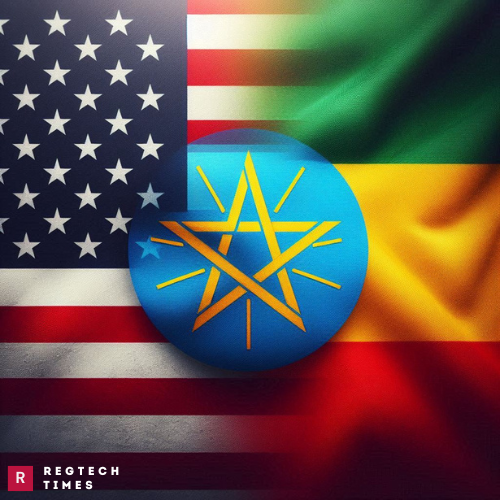U.S. President Joe Biden has extended an executive order that authorizes broad sanctions against those involved in the ongoing conflict in Ethiopia. Originally signed on September 17, 2021, Executive Order 14046 was scheduled to expire on September 17, 2024. On Thursday, Biden explained his decision to extend the sanctions for another year, stating that “the situation in and in relation to northern Ethiopia,” characterized by activities threatening the peace, security, and stability of Ethiopia and the greater Horn of Africa region, continues to pose an “unusual and extraordinary threat” to the national security and foreign policy of the United States.
Background of the Conflict in Ethiopia
The conflict in Ethiopia has its roots in a power struggle between the federal government, led by Prime Minister Abiy Ahmed, and the Tigray People’s Liberation Front (TPLF), a political party that controlled Ethiopia’s political landscape for nearly thirty years until Abiy took power in 2018. Tensions escalated in November 2020 when Ethiopian federal forces initiated a military operation against the TPLF, following what the government claimed was an attack on its military base in the Tigray region.
What followed was a devastating conflict marked by widespread human rights abuses, mass killings, sexual violence, and displacement. The war triggered a severe humanitarian crisis, with thousands killed, millions displaced, and famine-like conditions affecting large portions of the population. All sides in the conflict, including Ethiopian and Eritrean government forces, the TPLF, and Amhara regional forces, were accused of committing atrocities.
International Response and U.S. Sanctions
In response to the escalating conflict, the U.S. government took a series of diplomatic and economic measures aimed at pressuring all parties to cease hostilities and negotiate a peaceful resolution. In September 2021, President Biden issued Executive Order 14046, which authorized sanctions against individuals and entities that were seen as perpetuating the conflict or obstructing peace efforts in Ethiopia. The sanctions targeted members of the Ethiopian and Eritrean governments, the TPLF, and Amhara regional forces.
Earlier in May 2021, the U.S. imposed visa restrictions and economic sanctions on certain officials from the country and Eritrea who were believed to be responsible for fueling the conflict. The aim of these measures was to promote a negotiated settlement and facilitate humanitarian access to areas affected by conflict.
Peace Deal and Renewed Instability
A sign of hope appeared in November 2022 when the Ethiopian government and the TPLF reached a peace agreement in Pretoria, South Africa, after U.S. involvement. and African Union (AU)-led negotiations. The peace deal marked a significant step towards ending the war, outlining provisions for disarmament, restoration of humanitarian access, and political dialogue between the warring parties. The deal was seen as a breakthrough in efforts to stabilize Ethiopia and provide relief to millions suffering from the impact of the conflict.
However, less than a year later, new violence erupted in the Amhara region of Ethiopia. Tensions flared over the Ethiopian government’s attempts to disband the Fano, an Amhara militia group that had played a critical role in the conflict against the TPLF. The government’s move to disarm and restructure the Fano led to renewed clashes, further destabilizing the region and raising concerns over the fragile peace process. The resurgence of conflict in Amhara has since intensified, with reports of continued fighting and human rights violations.
Biden’s Decision to Extend Sanctions
Given the renewed instability, President Biden decided to extend the sanctions for another year. The decision reflects the U.S. government’s concern over the ongoing violence and its potential impact on the wider Horn of Africa region. Biden emphasized in his statement that the situation in Ethiopia “continues to pose an unusual and extraordinary threat to the national security and foreign policy of the United States.”
China Semiconductor Sanctions Spark Economic Challenges for Asian Firms
By extending the executive order, the U.S. aims to maintain pressure on all parties involved to commit to a peaceful resolution of the conflict. The sanctions serve as a tool to encourage dialogue and negotiations while also holding accountable those responsible for perpetuating violence and obstructing peace efforts.
Significance of the Extended Sanctions
The extension of the sanctions highlights the U.S.’s broader concerns over the stability of the Horn of Africa. Ethiopia, Africa’s second-most populous country, plays a critical role in the region’s geopolitics, and its instability could have far-reaching consequences. The ongoing conflict, particularly in Tigray and Amhara, has already displaced millions, exacerbated food insecurity, and created a humanitarian crisis that affects not only Ethiopia but also its neighbors.
The sanctions are also a signal of the U.S.’s commitment to supporting a peaceful resolution in Ethiopia. While the peace deal signed in 2022 was a positive step, the resurgence of conflict in Amhara and the federal government’s attempts to consolidate control over various regional forces demonstrate that the situation remains volatile.
Looking Ahead
The extended sanctions underline the complexity of Ethiopia’s internal dynamics and the challenges in achieving lasting peace. As the U.S. continues to engage with the Ethiopian government and other stakeholders, the focus will remain on encouraging dialogue, protecting human rights, and ensuring humanitarian access to those in need. The international community will closely watch how Ethiopia navigates its internal tensions in the coming months, hoping for a path that leads to sustained peace and stability.
By extending the sanctions, Biden aims to push all parties toward a comprehensive resolution, mindful that Ethiopia’s fate will significantly impact the future of the entire Horn of Africa region.


